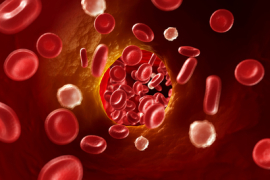Pregnant women are champions for the health of their babies. They change their diet and lifestyle to protect the growing life inside them. But new research published in the Journal of Obstetrics and Gynaecology Research suggests that organisms too small to be seen by the naked eye may put both mom and baby at risk.
Researchers examined placenta samples from 110 women who had recently given birth—half of whom had preeclampsia. They found that 12% of the samples from women with preeclampsia had bacteria associated with periodontitis, respiratory infections, and gastrointestinal infections. Women without preeclampsia had none of these bacteria.
According to the National Institute of Health, approximately 5-10% of all pregnancies worldwide are affected by preeclampsia, which is characterized by high blood pressure and proteins in the urine indicative of kidney damage.
The specific cause of preeclampsia is unknown; however researchers in this study concluded that their research supports the hypothesis that bacteria are one of the causes of preeclampsia.
Many previous studies have cited the oral microbiome as a player in pregnancy complications—even the cause of fetal death in a term stillbirth. Research earlier this year demonstrated that even healthy placentas contain a considerable amount of bacteria and viruses, many of which are native to the mouth.
While it is not yet certain whether periodontal intervention mid-pregnancy can reduce risks for complications such as pre-term births, low birth weight, and preeclampsia, it has been shown time and time again that an expectant mother’s health during pregnancy directly impacts the health of her baby.
Like diet and stress, bacteria and subsequent inflammation in an expectant mom’s mouth can and do place an unborn baby’s health at risk. Thus far, it seems that achieving a healthy mouth prior to pregnancy and good maintenance throughout is the most effective way to minimize the risks of pregnancy complications from oral pathogens and inflammation.



